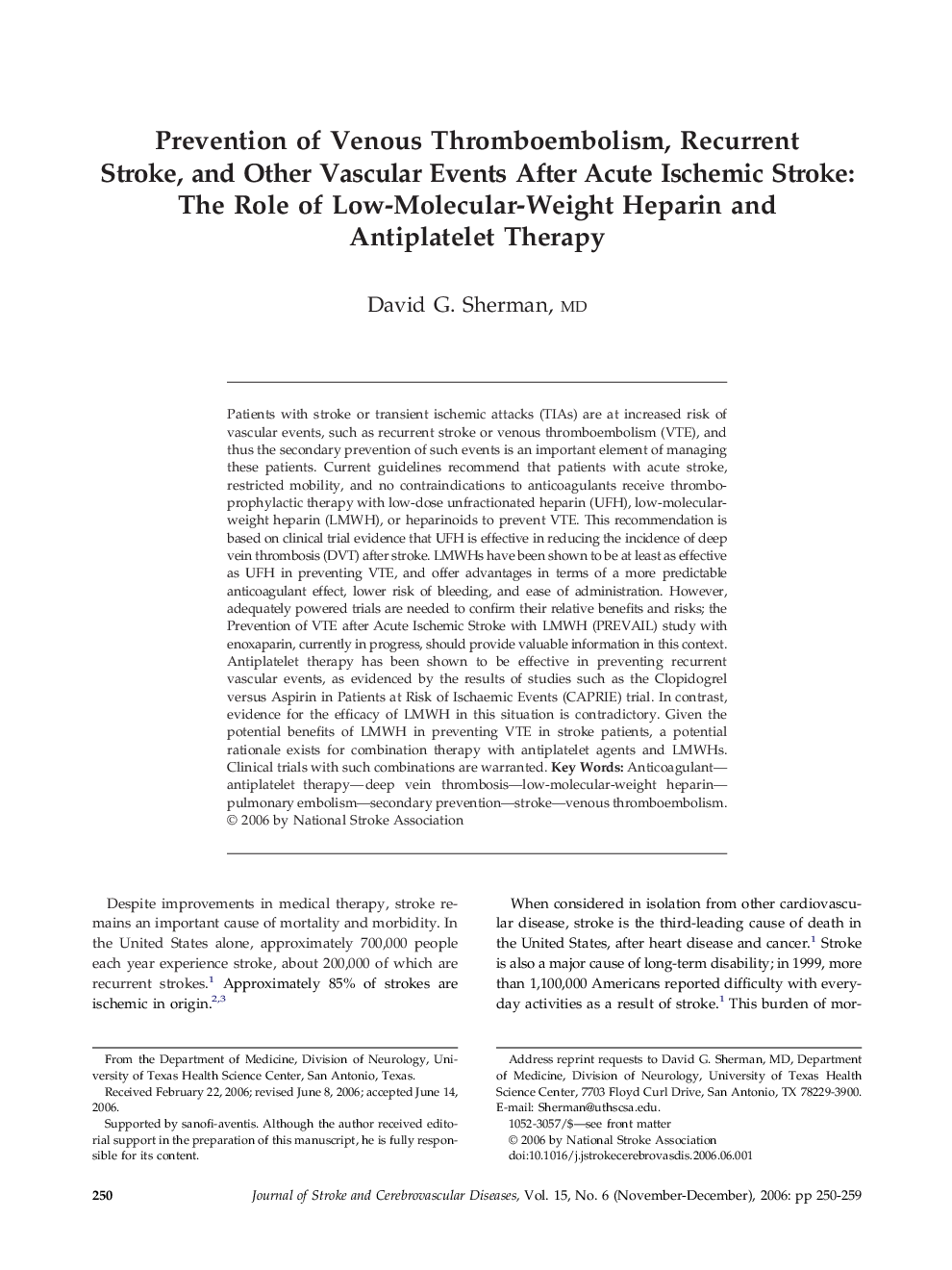| Article ID | Journal | Published Year | Pages | File Type |
|---|---|---|---|---|
| 2704885 | Journal of Stroke and Cerebrovascular Diseases | 2006 | 10 Pages |
Patients with stroke or transient ischemic attacks (TIAs) are at increased risk of vascular events, such as recurrent stroke or venous thromboembolism (VTE), and thus the secondary prevention of such events is an important element of managing these patients. Current guidelines recommend that patients with acute stroke, restricted mobility, and no contraindications to anticoagulants receive thromboprophylactic therapy with low-dose unfractionated heparin (UFH), low-molecular-weight heparin (LMWH), or heparinoids to prevent VTE. This recommendation is based on clinical trial evidence that UFH is effective in reducing the incidence of deep vein thrombosis (DVT) after stroke. LMWHs have been shown to be at least as effective as UFH in preventing VTE, and offer advantages in terms of a more predictable anticoagulant effect, lower risk of bleeding, and ease of administration. However, adequately powered trials are needed to confirm their relative benefits and risks; the Prevention of VTE after Acute Ischemic Stroke with LMWH (PREVAIL) study with enoxaparin, currently in progress, should provide valuable information in this context. Antiplatelet therapy has been shown to be effective in preventing recurrent vascular events, as evidenced by the results of studies such as the Clopidogrel versus Aspirin in Patients at Risk of Ischaemic Events (CAPRIE) trial. In contrast, evidence for the efficacy of LMWH in this situation is contradictory. Given the potential benefits of LMWH in preventing VTE in stroke patients, a potential rationale exists for combination therapy with antiplatelet agents and LMWHs. Clinical trials with such combinations are warranted.
